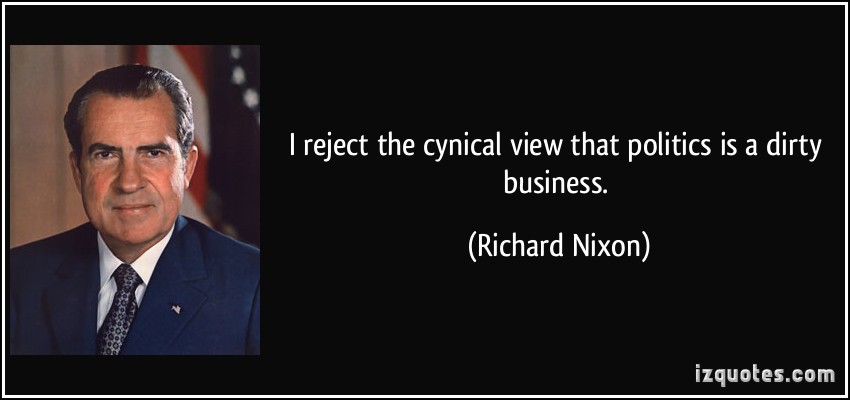Joining the dots

I, like many others, was bemused by our government’s tardy
response to the Ebola crisis. I know they were advised that infected
health workers might not survive a 30 hour plane trip back to here but
they seemed to do little to find a solution.
Australian Medical Assistance Teams
(AUSMAT) are multi-disciplinary health teams incorporating doctors,
nurses, and allied health staff. They are designed to be
self-sufficient, experienced teams that can rapidly respond to a
disaster zone to provide life saving treatment to casualties, in support
of the local health response.
Instead of deploying these teams, we sat back as the infection rate
grew exponentially, and brave volunteers who recognised the necessity of
rapid response chose to go and help without government support.
Belatedly, Abbott announces a deal has been made (more than a
fortnight after it was offered), but outsources our response effort to
Aspen Medical without going through any form of tender process.
Call me cynical, but whenever this government begins outsourcing, I start wondering who will make money out of the deal.
SMH November 7, 2014
Canberra-based Aspen, with a workforce of 2200, has become a regular
recipient of government contracts, particularly from Defence.
In 2009, it signed three contracts worth $130 million to provide
assistance to the regional mission in the Solomon Islands. This year it
received another $26.5 million for regional assistance.
The company was officially opened in 2004 by the then Howard Government Health Minister Tony Abbott.
Electoral records show it donated $11,000 to the Queensland LNP last year.
Meanwhile, the World Health Organisation has asked Australia and
Canada to justify their decisions last week to suspend migration from
Ebola-hit countries.
“These are measures that go beyond the recommendations of the WHO’s
emergency committee,” said Isabelle Nuttall, who heads WHO’s alert and
response department.
Australia on October 27 became the first Western nation to suspend
migration from Ebola-hit West African nations, and Canada followed suit
four days later.
Lateline November 7, 2014
The Department of Foreign Affairs and Trade awarded the $20 million
contract to Aspen, bypassing Australian medical assistance teams or
AusMats who are specifically trained to deal with this kind of crisis.
EMMA ALBERICI: So was this an open and competitive tender process?
GLENN KEYS: I can’t really talk to that because I’m not inside
government, but I can say that because of our background in previous
experience in deployments, as well as our experience in Liberia, I think
we’re really well suited for the provision of these services to the
Australian Government.
EMMA ALBERICI: Is there any level of Australian Government logistical support for your efforts?
GLENN KEYS: No, they’ve contracted us to provide all of the services.
EMMA ALBERICI: What I’m asking you, I guess is that you’re the people
who are recruiting and providing the supports and the Government of
Britain is giving you that logistical backup. What I’m asking you is
beyond the money, the Australian Federal Government isn’t really
providing anything else, is that correct?
GLENN KEYS: Well, they’re providing us, and I think that’s the thing
that is important because we will be and have been already canvassing
Australian health worker whose will help, as well as logistics officers
and environmental health officers, and we will be putting that team
together as part of that delivery of service.
And I think that’s going to be great, that there will be Australians helping deliver care to the people of Sierra Leone.
EMMA ALBERICI: So what proportion of Australians compared to overseas people will you be employing to man this treatment centre?
GLENN KEYS: It will be 10 to 20 per cent
A visit to the Aspen Medical site provides the following information:
“Founded in 2003 by Glenn Keys and Dr. Andrew Walker, Aspen Medical
is an Australian-owned, multi award-winning, global provider of
guaranteed and innovative healthcare solutions across a diverse range of
sectors and clients including Defense, Mining & Resources, Oil
& Gas, Government and Humanitarian.
Our competitive advantage lies in superior project management and the
quality of our team. We pride ourselves on a customer-centric approach
and a ‘can do’ attitude.”
So I decided to look into “the team”.
Aspen Medical co-founder and Managing Director, Glenn Keys,
has been appointed to the board of the National Disability Insurance
Agency (NDIA), formerly known as DisabilityCare Australia.
Glenn is the only appointment from the ACT. The NDIA is an
independent statutory agency, whose role is to implement the national
disability insurance scheme (NDIS), which will support a better life for
hundreds of thousands of Australians with a significant and permanent
disability and their families and carers.
SMH April 16, 2014
“Medical entrepreneur Andrew Walker has been accused of defrauding
creditors by hiding $15 million worth of shares in tax haven the British
Virgin Islands.
The liquidator of Dr Walker’s investment company, Apsara Capital, on
Friday launched legal action against Dr Walker and Singapore-based
businessman Georges Daniel Mercadal over the transaction.
He alleges Dr Walker ”improperly used his position to gain an
advantage for himself or someone else, or cause detriment to Apsara”.
Mr Mercadal either ”wilfully shut his eyes to the obvious” or,
together with Dr Walker, was part of ”a dishonest and fraudulent design”
to divert the shares, he said.
The liquidator asked the court to order Dr Walker and Mr Mercadal to
pay damages and return the proceeds of the alleged diversion.”
The article goes on to say
“Since founding healthcare group Aspen Medical in 2003, Dr Walker and
school friend Glenn Keys have built the company into a profitable
enterprise that employs 2200 people and boasts former health minister
Michael Wooldridge on its board.”
SMH December 13, 2013
A Federal Court has found the directors behind failed nursing home
empire Prime Trust, including former federal health minister Michael
Wooldridge, breached their corporate duties by overseeing a $33 million
fee to the trust’s founder.
Justice Bernard Murphy ruled on Thursday that Dr Wooldridge and four
other directors, including former Places Victoria chairman Peter Clarke,
failed to act in members’ best interest by approving the fee to founder
and director Bill Lewski.
Prime Trust collapsed in 2010 owing $550 million to investors. The
managed investment scheme owned retirement villages in Queensland, NSW
and Victoria.
The Australian Securities and Investments Commission has asked the
court to disqualify the five men from being company directors and order
them to pay a penalty.
Dr Wooldridge is a director on a number of company boards, including
Aspen Medical, Oral Health Australia and Australian Pharmaceutical
Industries, owner of Priceline.
Penalty hearings for the directors will begin early next year.They face fines of up to $200,000 and bans from company boards.
ASIC Commissioner Greg Tanzer said the Federal Court’s decision was a
significant outcome for investors. ”The conduct of the APCHL board was
unacceptable and today’s judgment reflects that,” he said.
SMH December 9, 2013
The tax office is deciding whether an anti-wind farm group linked to
former Liberal MPs should retain its favourable tax treatment.
The Waubra Foundation has been classified a ”health promotion
charity” by the tax office, meaning its ”principal activity is promoting
the prevention and control of disease in humans”.
It has also been granted deductible gift recipient status by the
Australian Taxation Office, and donations of more than $2 to it are
tax-deductible.
Donations to Waubra have helped fund legal challenges against wind farm developments.
Former health minister Michael Wooldridge is a director of Waubra, and former MP Alby Schultz is its patron.
The foundation says its main aim is to ”educate others about the
known science relating to the adverse health impacts of infrasound and
low-frequency noise.”
The Age June 27, 2012
A lack of timely access to doctors is a common complaint these days
as waiting times blow out and people must go further afield or to
bulk-billing clinics in search of medical help. This shortage of doctors
can partly be traced to a 1996 decision by the Howard government, under
then health minister Michael Wooldridge, to reduce funding for medical
education places and to cut Medicare rebates for some doctors. The
government relied on figures that forecast an oversupply of doctors by
2015.
Dr Brian Morton, a Sydney GP and chairman of the Australian Medical
Association’s Council of General Practice, says: ”The information that
the [Howard] government had was grossly inaccurate and shortsighted.
Despite the [contrasting] figures that the AMA had at the time, the
government wasn’t listening. The community is paying for that now.”
One consequence of the cuts in the ’90s has been that
overseas-trained doctors have been brought in to fill the gap. A quarter
of doctors practising here were qualified overseas. In 2009-10, 4700
visas were granted to medical practitioners – double the number of
medical students who graduated from Australian universities. Health
Workforce Australia found that by 2025 there will be about 2700 fewer
doctors than Australia needs. (The shortage of nurses will be even more
dramatic, with a gap of 110,000 in the same period.)
So, in summary, our Government is still doing nothing about the Ebola
crisis except paying $20 million to a private company (who is a party
donor and who was officially opened by Tony Abbott) who will give local
Africans a ten day training course. The company’s co-founder stands
accused of “improperly using his position to gain an advantage for
himself” and of “defrauding creditors” by using tax havens to hide
shares. Their company director, a former Liberal Minister who is
largely responsible for the acute shortage of doctors in Australia and
who is the director of a charitable organisation devoted to campaigning
against wind farms, is now facing a ban from being on company boards for
breaching his corporate duties and failing to act in members’ best
interests by overseeing huge kickbacks to mates.
And they wonder why I am cynical.



No comments:
Post a Comment